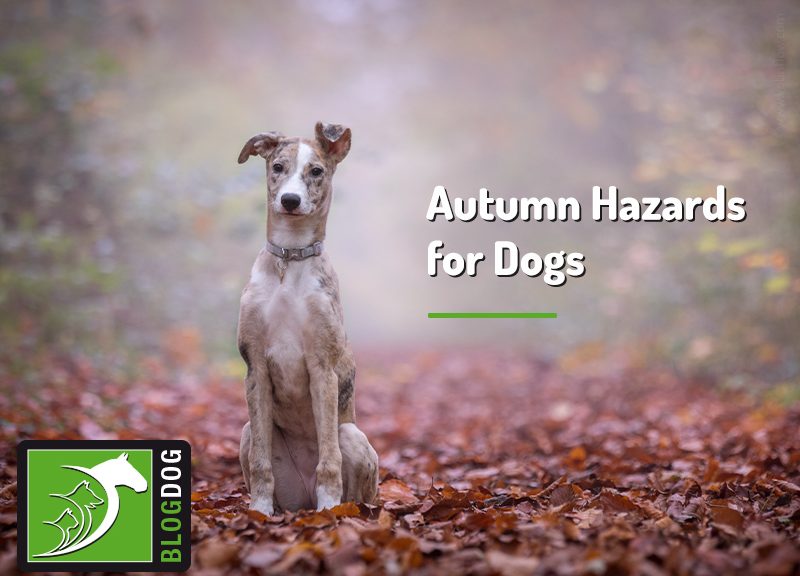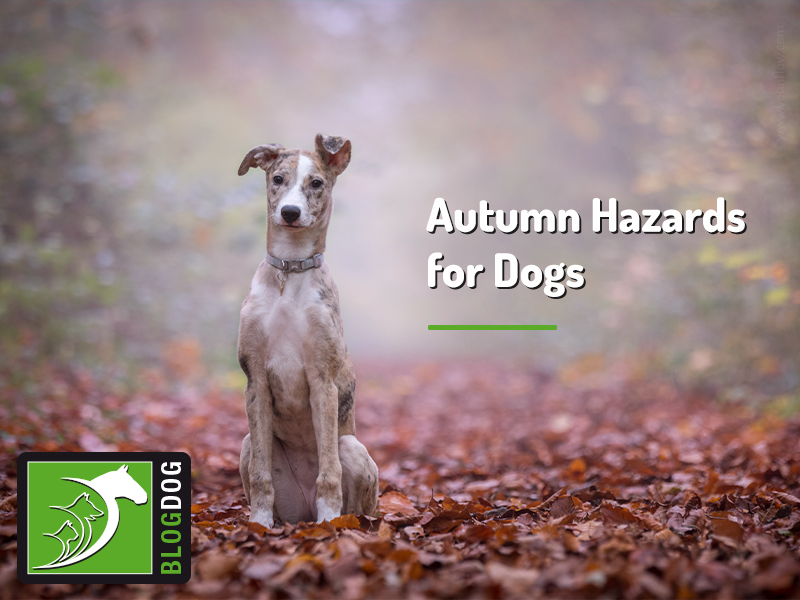Autumn is one of the most beautiful seasons of the year, with the trees changing colour and the leaves falling, that lovely earthy scent that lingers in the air after rain, and that characteristic early morning and late afternoon chill that starts making its presence, inviting us to stay home snuggled with our pets in front of a warm fire.
However, this season also comes with some concerns regarding our pets’ health and safety, and we’re going to go over a few of them so you can prepare in advance.
Out and about
There’s something magical about autumn walks, and nothing makes it better than enjoying them with our four-legged friends.
On your walks, make sure you pay attention to fallen conkers, acorns and leaves. Conkers and acorns are toxic to dogs and can cause gastrointestinal distress, overall discomfort, restlessness, pain, and in more severe cases, collapse and even death. If swallowed whole, they can also get stuck in the digestive tract causing an obstruction that might require a surgical intervention.
As for the fallen leaves, these may be a lot of fun to play with, but they can also be a breeding ground for mould and bacteria that can harm your pets if ingested.
If you choose to go for a walk in the woodlands, keep a close eye on your dog for the next couple of days as they can come down with Seasonal Canine Illness (SCI). This condition is rare, and its cause hasn’t been identified yet, but common signs include vomiting, diarrhoea and an overall decrease in your dog’s energy. There is no cure for SCI, but animals that receive prompt supportive treatment can recover from the condition.
Fireworks season
There are a number of pets that suffer from stress and anxiety with the loud pops and whizzes characteristic of fireworks. As a result, many dogs can run off because they’re scared and get lost from their owners.
Besides being a legal requirement, microchipping will make reuniting you and your dog much easier in case this happens. Just make sure your contact information is updated with the microchip company as well as with the veterinary practice where your dog is registered.
There are a lot of options to help your dog cope with these stressful events. Ideally, you should seek help in advance from a qualified behaviourist, as behaviour modification techniques and training take time to produce the intended effects. Alternatively, there is medication your vet can prescribe that can also help.
At home, you can prepare a cosy den where your dog can escape to if he or she is scared. Also, try to muffle the sound of the fireworks by turning on the TV, and keeping the windows, blinds and curtains shut. Providing something to keep them distracted can also be a good option for some dogs.
Halloween
Just like with fireworks, having people constantly knocking on the door or ringing the bell can be extremely stressful to dogs, and the same advice applies in this situation.
But besides the agitation that is characteristic of this day, dog owners also need to be aware that chocolate and sweets are toxic to dogs, so make sure these are kept out of your pets’ reach.
Now that we have these topics covered make you sure you thoroughly enjoy all the wonderful experiences this season has to offer!
Would you like to know more about dogs? Check our Canine Courses:
![]()
Canine courses

